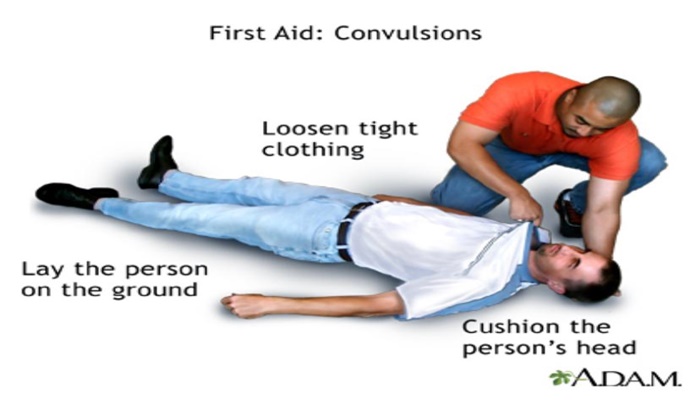
A medical expert, Dr Omowunmi Adewara has advised first aiders for people having convulsions to take the right steps, in order to avoid causing more harm before help arrives.
Adewara gave the advice at a webinar organised by the medical team of Executives Initiative (EI), an NGO, in Lagos on Saturday.
The News Agency of Nigeria (NAN) reports that the event tagged, ‘First Aid Management of Convulsion’ was aimed at creating awareness on how to manage convulsions before the patients are taken to the hospital.
Adewara, who is also an EI volunteer said convulsions, also known as seizures, occurred “when there is abnormal excitation in the brain cells that result in abnormal jerky movement of the body and altered level of consciousness.”
According to her, convulsions can occur in any age group or gender.
She, however, said children between six months and five years of age, pregnant women and adults with underlying conditions such as brain tumours, are the most vulnerable.
Adewara noted that seizures could also be caused by epilepsy, and not everyone who suffer convulsions is epileptic.
“In children, the most common cause of convulsions are febrile seizures.
“One of the causes of this is severe malaria.
“Children with severe malaria have extremely high body temperatures which cause them to have convulsions,” she said.
According to her, other causes of convulsion include stroke, low blood sugar, genetic disorders, alcohol, drug withdrawal, and trauma to the head due to accidents or domestic violence.
Adewara urged the first aider not to panic while helping someone with convulsion.
“Call for help and while waiting, ensure that the environment is safe to you first before approaching to help.
“Remove any harmful objects close by that may cause injury to the person and loosen any tight fitting clothes that may choke or restrain them.
“Place something soft, if available, under the head of the person to prevent head trauma.
“Place the person on their side, that is the recovery position, once the seizure is over,” she said.
She further cautioned against putting anything in their mouth, giving them anything to drink and restraining people having seizures, to avoid causing them harm.
Adewara urged those helping out not to immediately leave people who had just suffered convulsions after it stops because they could wake up disoriented and confused and would need to be calmed.
She advised people that have suffered from seizures to go for adequate medical follow up. (NAN)






